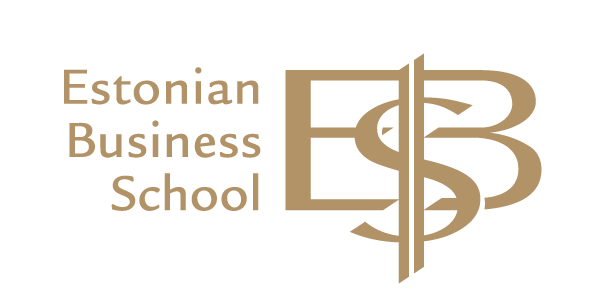Academic year 2024/2025 results
We would like to thank all the students who took the time to respond to the course evaluations questionnaires.
We especially thank those who offered insights by adding comments, thus providing substantive feedback on both development areas and successes. The students’ feedback was shared with EBS management, Heads of the study levels and Heads of the programmes. Your input is invaluable as we continue to develop our courses and study programmes.
In case you have any questions regarding the course evaluations and feedback please contact Head of Student Experience Liina Reimann (liina.reimann@ebs.ee)
Overall results
The academic year 2024/2025 marked a high point in EBS’s commitment to quality teaching and student-centred development. Course evaluation results reached an all-time high of 6.32 out of 7.0, the highest score in the past five years. This milestone is a result of continuous collaboration with students through formal feedback channels and focus groups.
This exceptional outcome reflects the quality and relevance of EBS courses, the dedication of faculty, the impact of our responsive feedback culture and highlights the effectiveness of ongoing programme improvements
While the response rate for the Spring semester showed a minor decline, the annual average response rate remained strong. We are optimistic that students will continue to actively participate in the feedback process in the upcoming academic year, helping us to keep improving and evolving our programmes in meaningful ways.
Overview of bachelor programmes
The average response rate on bachelor’s level was 28.27%.
Below you can find the scores for each bachelor’s programme:
The Entrepreneurship & Business Administration programme received the score of 6.39 out of 7 (response rate 27.8%)
The International Business Admistration programme received the score of 6.22 out of 7 (response rate 22%)
The Impactful Entrepreneurship programme (IntBEB) scored 6.40 out of 7 (response rate 44.18%)
Overview of master programmes
The average response rate on master’s level was 39.5%.
The MBA programme core courses recieved the score of 5.97 out of 7 (response rate 40.92%)
The MA programme recieved the score of 6,34 out of 7 (response rate 39.35%)
The average scores for microdegrees continue to stay on high level, receiving 6.37 out of 7 (response rate 37.82%)
Focus groups
To ensure a comprehensive understanding of the student experience, EBS complements standardised course evaluations with programme-specific focus group discussions. These discussions provide deeper insight into the structure, delivery, and organisation of courses, as well as the broader student experience across study levels and formats.
We extend our sincere thanks to all students who completed course evaluations and participated in focus groups. Your input is essential for ensuring EBS programmes remain academically rigorous, practically relevant, and personally rewarding.
The discussions were conducted in cooperation with Heads of the Programmes
Main points of general feedback from focus groups
Achievements and positive feedback
- Academic progress & curriculum design
- Students across programmes praised course coherence, particularly in specialisation modules (e.g., finance),
- Elective semesters were appreciated for their flexibility, diversity, and the opportunity to explore topics of personal interest.
- Practical tasks, simulations, and real-world applications (e.g., case studies and project-based learning) are continuously highly appreciated
- Learning environment & infrastructure
- Renovation efforts significantly improved the classroom environment, reducing noise and improving ventilation.
- Students noted a welcoming and professional atmosphere with modern facilities and improved campus environment
- Student services & experience
- Introweek and onboarding processes were reported as smooth and supportive, including by session-based and international students.
- High satisfaction with the Internship Portal and events organised by Investment Club and Student Council.
- Staff were considered approachable, responsive, and committed to student success. Special praise was given to specific lecturers for creating engaging, supportive classroom experiences.
- Skill development
- Students reported improvements in time management, public speaking, teamwork, self-awareness, and critical thinking.
- Tools like Canvas and access to resources like Merit Aktiva were seen as helpful in acquiring practical business competencies.
Areas of improvement
- Course planning and delivery
- Concerns about uneven workload distribution and overlapping assignment deadlines were raised.
- Canvas functionality issues (e.g., broken calendar, feedback visibility) disrupted learning efficiency.
- Inconsistent scheduling for exams and assignments, particularly in spring semester, created stress.
- Feedback and assessment
- Requests for clearer grading criteria, more detailed feedback (especially in online assessments), and visibility of test results were frequent.
- In some cases, students were unsure how participation or coursework impacted final grades.
- Inclusion and communication
- International students requested clearer academic instructions and more targeted support (e.g., exam re-takes, English language adjustment).
- Some session-based students found it difficult to participate in events or fully engage with peers due to scheduling conflicts.
- Students suggested improved Erasmus and elective information access.
- Teaching format
- While most teachers were praised, a few courses were seen as too theoretical, passive, or repetitive.
- Facilities and campus services
- Students called for: extended lunch breaks, better cafeteria pricing, parking solutions and more group mingling areas
Implemented changes
- Canvas functionality issues
- Technical issues in the Canvas learning platform were identified and resolved, including the broken calendar view and issues with feedback visibility. Students now have clearer access to course materials, schedules, and assessment feedback
- Event planning and inclusion
- The Student Council has responded to feedback by diversifying event formats and aiming for better inclusion of session-based and international students through improved timing and communication.
- Infrastructure and learning environment
- Ongoing renovation efforts addressed ventilation and noise issues in several classrooms, creating a more comfortable and focused learning environment.
- Additional lounge areas and small-group study spaces were made available to support collaboration and relaxation.
- Student support and communication
- Study consultants and programme heads are working proactively to improve transparency around elective courses, Erasmus opportunities, and assessment structures.
Future developments based on proposals
- Academic development
- New electives are being considered in suggested areas
- Cross-cohort networking and inclusion
- Plans to launch more community events in cooperation with student organisations
